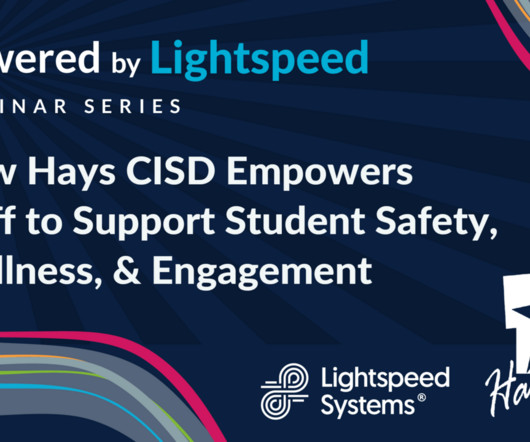Generative AI and Academic Integrity
Lightspeed Systems
OCTOBER 20, 2023
As such, academic dishonesty—student “cheating,” for example—has always proven a pain in the arse for educators. With enabling technologies at the fingertips of students at every grade of the K-12 spectrum, there’s a tendency for some to consider cheating a byproduct of today’s Information Age.














Let's personalize your content